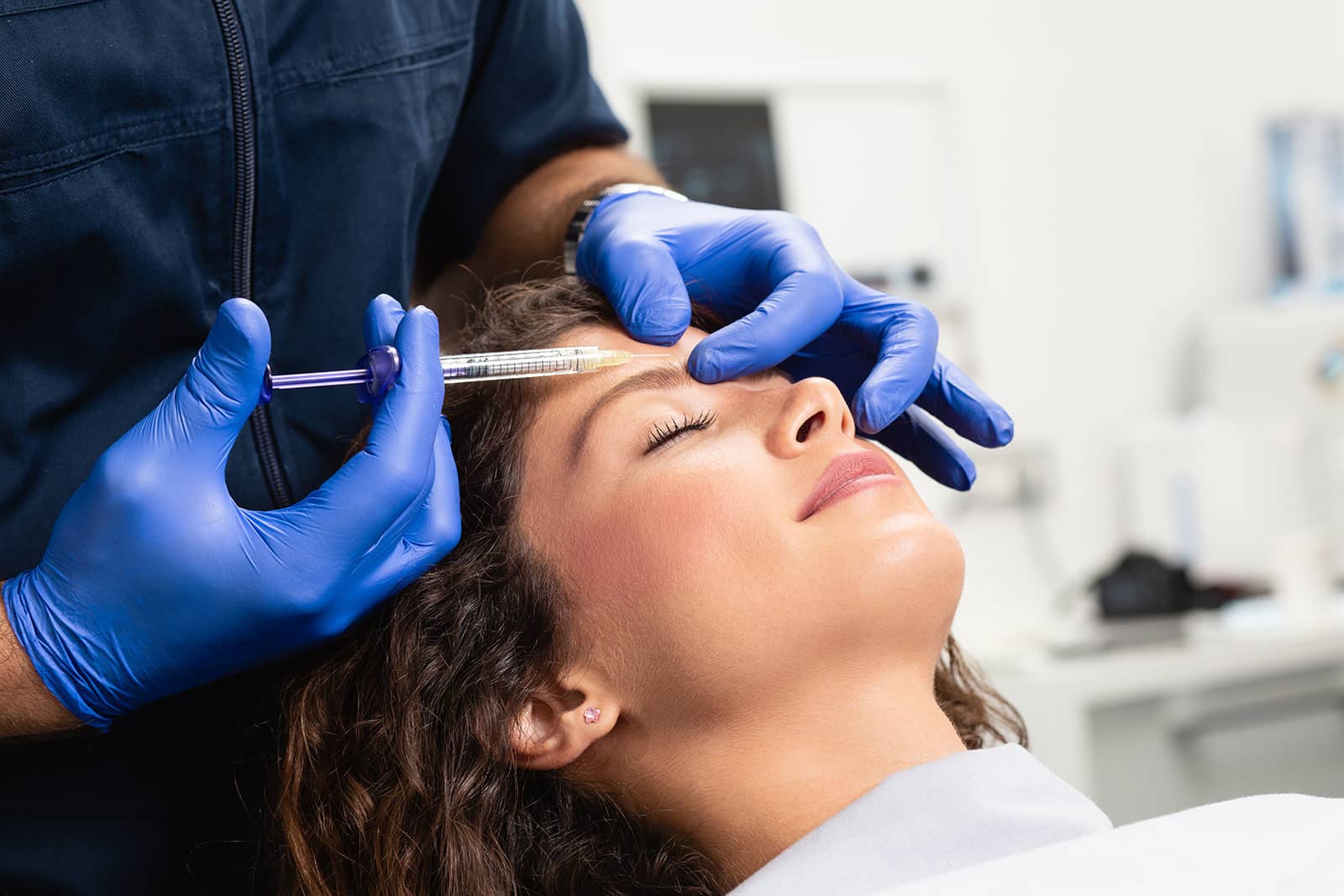Most of us understand the general concept Of Botox. We have a vague grasp of potential side effects and understand that Botox treatment seeks to avoid undergoing surgery to achieve a more youthful appearance. However, unless you have experienced the procedure firsthand, specific knowledge about Botox can be elusive.
Doctors use Botox in a variety of medical procedures. It works via a nerve toxin called botulinum type A. Botox temporarily paralyzes targeted muscles. Its most common and familiar use is to reduce the appearance of wrinkles, but it has numerous applications.
- Migraine headaches – can reduce the frequency and severity
- Muscles – spasms, stiffness, and pain
- Urinary bladder – incontinence and overactive bladder
- Sweating disorders – reduces excesses
- Scars – preventative
While Botox is usually safe, it has a few side effects that can potentially become serious. They include but are not limited to:
- Pain at the injection site
- Muscle weakness
- Vision problems – e.g., blurred or double
- Facial asymmetry
- Headache or flu-like symptoms
You might ask, “Can I relax with an alcoholic beverage after Botox?” Patients must avoid consuming alcohol after Botox because drinking can exacerbate the effects of botulinum on the skin and circulatory and nervous systems.
How Alcohol Affects the Body Post-Botox
The natural effects of alcohol on the body can prove detrimental after Botox treatment. Hence, why no alcohol after Botox. When you drink alcohol after Botox injections, you interfere with healing and your desired results.
Alcohol thins the blood
Alcohol has anticoagulative or blood-thinning properties, meaning it blocks the body’s ability to clot. Carefully controlled clot formation allows new tissue to regenerate while minimizing bruising. Alcohol consumption immediately post-Botox can cause excessive bruising, which is a result of alcohol’s potent vasodilatory or blood vessel-dilating effects.
After Botox injections, the targeted sites are exceptionally delicate. Even if alcohol causes minimal damage to blood vessels in these areas, you will often see severe bruising. Your face and neck are especially vulnerable.
Alcohol has negative effects on healing and increases inflammation
When blood vessels expand, they become leaky, leading to swelling and inflammation. An inflammatory response is part of the healing process after a Botox procedure. However, if inflammation is unchecked, it will delay the body’s ability to repair itself.
Alcohol inhibits the general healing process even aside from its inflammatory effects. It slows recovery from the needle punctures and injection site swelling. Alcohol can also exacerbate Botox side effects, further delaying healing.
Specific Risks of Drinking Alcohol after Botox
Scientists have not yet performed focused research on the effects of drinking alcohol immediately post-Botox. However, doctors have observed the effects of short- and long-term drinking on patients before, during, and shortly after Botox procedures.
Since alcohol dehydrates tissues, especially the skin, it adversely affects elasticity. Furthermore, it is not uncommon to witness increased swelling at a Botox puncture site after a glass of wine. The immediate effects of drinking alcohol on the skin after Botox treatment are several:
- Dryness and cracking
- Flushing
- Dullness
- Broken capillaries with prolonged swelling at the needle injection ports
- Unsightly bruising in the treatment area
Repeatedly consuming alcohol surrounding Botox procedures can undermine your goals of smooth skin. Heavy drinkers often struggle with fine lines and wrinkles even immediately post treatment.
Guidelines for Post-Botox Care
Proper post-Botox care is the best path to optimal results and fewer side effects.
- Do not lie down for three to four hours
- Avoid direct sunlight for three hours
- Don’t touch the treatment area, including scratching, massaging, or rubbing
- No saunas, hot tubs, or tanning beds for four hours
- Avoid drinking alcohol for 24 to 48 hours
- Take arnica three times daily for two to four days before and up to 10 days after treatment to help with inflammation and bruising
- Normal muscle movements are fine; avoid exaggerated expressions
- Avoid sleeping on the affected side; ideally, sleep on your back
- Do not undergo other treatments, like facials, for at least three days
- Don’t engage in strenuous exercise for 24 hours or more; exercise causes increased heart rate and blood pressure, leading to vasodilation
- Avoid blood thinners like aspirin
- Stay hydrated by drink plenty of water to improve the appearance of your skin and enhance its elasticity
The Bigger Picture: Alcohol and Health
Although drinking alcohol affects multiple systems in the body, most experts consider it safe in moderation. Excessive drinking has devastating effects on almost every organ.
- Liver – the liver is most susceptible to the effects of alcohol, manifesting as fatty liver, cirrhosis, or other forms of advanced liver disease
- Pancreas – heavy drinking is linked to sensitizing the pancreas to inflammation
- Small intestine – inflammatory bowel disease and other digestive problems are more common
- Heart disease and stroke risks are increased with chronic alcoholic excesses
- Hormones – excessive alcohol consumption interferes with virtually all hormones, affecting reproductive, thyroid, and immune health
- Muscles – muscular disorders secondary to alcoholism are largely underestimated
- Nervous system – heavy drinkers suffer long-term changes in the brain in addition to disorientation and incoordination during consumption
Conclusion
Botox treatment is often a cosmetic procedure. Results and healing are the major reasons why no alcohol after Botox is such an important take-away message. Avoiding alcohol consumption before and after Botox injections is crucial to your skin’s health post-Botox.
First, no alcohol after Botox helps keep your skin from dehydrating. It eliminates one cause of post-Botox swelling and bruising. Finally, refraining from indulging in a cocktail when you get home from your Botox procedure will allow your natural healing process to occur without interference from a blood thinner. It will alleviate delayed healing from the acute effects of alcohol on the immune system and skin.
If you want more information about drinking alcohol safely during specific medical procedures or are concerned about addiction, call us today.


